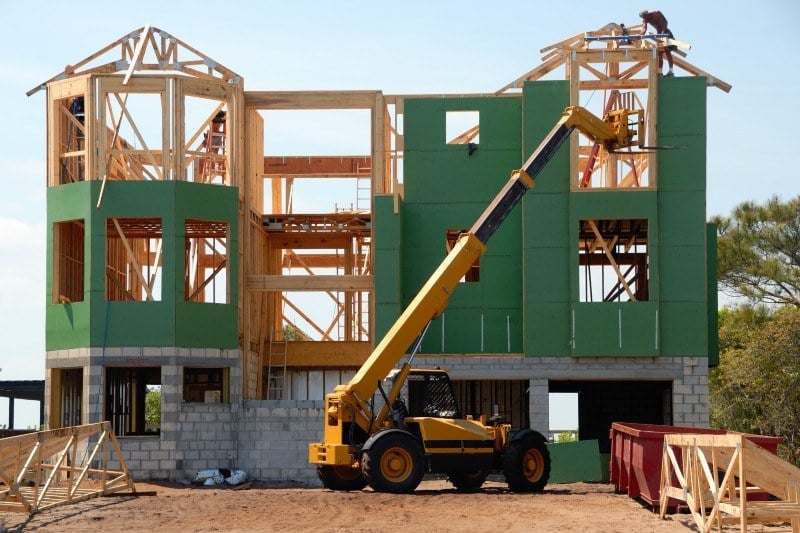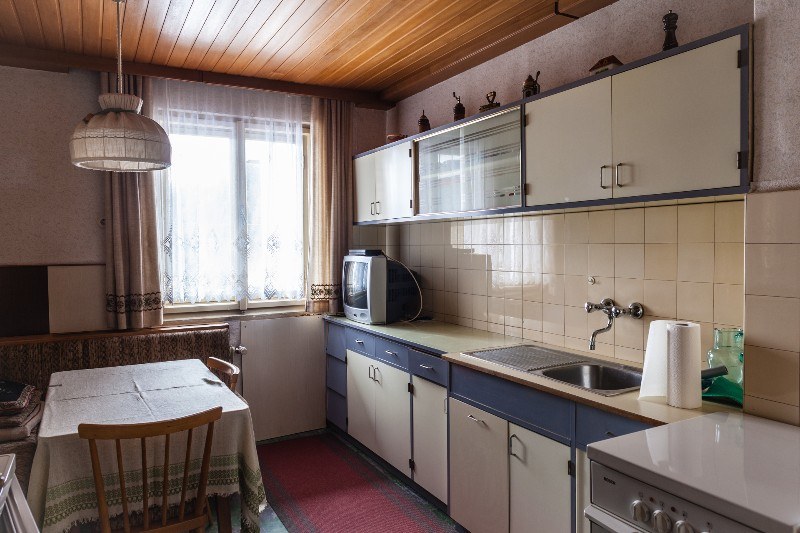
Buying a Home: How to Interpret Realtor.com's Flood Scores
Posted on Nov 02, 2021
While looking at homes for sale, you may have noticed that realtor.com has recently added a flood...

Posted on Nov 02, 2021
The housing market today is incredibly competitive. Move-in ready homes that have the updates and amenities people want are often getting snapped up in a single day - and receiving multiple offers over asking price. Not surprisingly, some homebuyers are unwilling - or unable - to play that game.
Homes that have imperfections or need a little TLC are getting more attention from people who are willing to deal with outdated shag carpeting for a while if it means finally owning a home.
Smell is one such imperfection that buyers are re-evaluating. A home that may have never gotten a second glance now has homebuyers wondering: is there a way to get rid of this smell? And if so, how much will it cost?
Here's what the experts have to say about smell removal and buying a home.
When it comes to pet urine, tread carefully - because there’s often a lot going on under the surface that you might not be aware of.
Although a carpet that smells like dog or cat pee may sound awful, it’s often the best-case scenario because you might have the option of simply replacing the carpet in order to eliminate the smell (or if you’re tempted, there are ways you can try to remove the urine smell from carpet - but these methods are best for treating small, limited areas). If the whole house smells like dog urine, however, the problem may be deeper than just the carpet.
When animals have peed on floors over and over, urine can soak through the floor and enter the subfloor. You may have heard of cleaning solutions for removing urine smells from carpets and floors, but if the urine gets beneath the floor, no amount of Angry Orange or white vinegar solution is going to remove the smell completely. In extreme cases, it’s possible that there was enough urine for it to soak up into the walls as well.
Cost:
It is possible to replace parts of the subfloor and eliminate the crystallized urine that is producing the smell. However, this can be a fairly large project, and a costly one as well - according to Fixr, the average range for replacing a subfloor is $600 to $2,400 - but costs can go higher depending on where you live and how much of the floor needs to be replaced.
So does the smell of pet urine mean a home is unsalvageable? No, but proceed with caution and get a quote from a contractor if you plan on asking the seller to reduce the price in order to cover the cost of having to do work.
Before you buy a house that smells like pet urine, here's what you should consider:
.jpg?width=700&height=350&name=subfloor-Jul-11-2023-09-27-38-4768-PM%20(1).jpg)
A musty smell is a warning sign that homebuyers should not ignore because where there’s musty smell there’s typically mildew (a type of mold), and when there’s mildew there’s often moisture. A musty smell is often a warning sign of a more serious issue with the home. Mold sensitivity and prolonged exposure to mold spores can spell trouble for you and your family’s health.
A musty home doesn’t mean that you shouldn’t buy the home - however, if the source of the smell can’t be determined, make sure that any offer you make is contingent on the results of the home inspection. You can also opt for a professional mold inspection, which costs an average of $650 - or you can do it yourself with a test kit, which will run you about $40.
Cost:
The cost of fixing a musty smell really depends on its source. If the problem is a leaky sink, the fix might be cheap. If the problem is a leaky shower and moisture that's entered the flooring, however, the costs can be exorbitant.
Mold remediation will fix the issue in many situations. According to LawnStarter, mold remediation services typically cost between $1,373 and $3,325.
Things to consider before you buy a house that smells musty:
You found the perfect home, but there’s one big problem: it smells like smoke. Although smokers are typically prohibited from smoking indoors, there’s one big exception, and that’s the private home. Over time, the particles present in smoke cling to the walls and persist in creating that “smokey smell” long after the cigarette is finished.
Past smoking can potentially expose you to the effects of thirdhand smoke long after the last owners have left the house. According to the Cleveland Clinic, “When you smoke in a room or car, toxic chemicals like nicotine cling to walls, clothing, upholstery and other surfaces... Results of a study published in 2010 found that when this nicotine reacts with nitrous acid in the air, it forms carcinogens.” This can be especially concerning when you have children, due to the impact secondhand smoke can have on child development.
Expect that a lot of cleaning will be required before the home is clean again: you’ll need to scrub down every wall and ceiling, along with any surfaces, and you will need to either clean or ideally, replace anything porous, such as fabric (ex: drapes), furniture, and carpet - as it will have absorbed smoke.
Cost:
Experts say that smoke remediation typically costs thousands of dollars.
"In my experience, the average cost of smoke remediation from cigarette smoking is between $4,300 and $4,500. However, it’s maybe lower or higher depending on how distributed the damage is in your house," says Andrew Barker, Founder of HomeownerCosts. "You may need to pay more if every room in your home needs to be treated. Damage from toxic chemicals from cigarettes is not only harmful to you and your family but also to your home."
According to Sean Chapman, Founder of Tools'n'Goods, some homeowners will pay far above the average: "the cost is always based on unique circumstances or the treated space. The service provider will consider the size of the area, affected materials, and the quality of ventilation in the area," he says. "The averager remediation plan costs around $4,000 but it may also vary from $2,000 to $12,000, depending on the listed factors."
When it comes to eliminating smoking smells from a home, here's what you need to keep in mind:
If you’ve purchased a newly constructed home, you might notice it has a peculiar scent. Volatile Organic Compounds (VOCs) are the result of evaporating paint, sealants, etc. as well as chemicals from treated wood, flooring, and more. Long-term exposure to VOCs can lead to health issues like asthma and kidney damage, and in the short term, it can lead to headaches and nausea.
To get rid of that “new home smell,” one of the easiest solutions is to “bake it out,” which involves keeping the home consistently heated at a high temperature for several days along with airing out the house. You then need to let the home air out entirely for several days with open windows.
Subscribe to our newsletter to get essential real estate insights.

Posted on Nov 02, 2021
While looking at homes for sale, you may have noticed that realtor.com has recently added a flood...

Posted on Nov 02, 2021
There is a frustrating lack of available homes for sale in real estate markets around the country....

Posted on Nov 02, 2021
Home prices have shot up over the past few years, making homebuying an even more challenging...